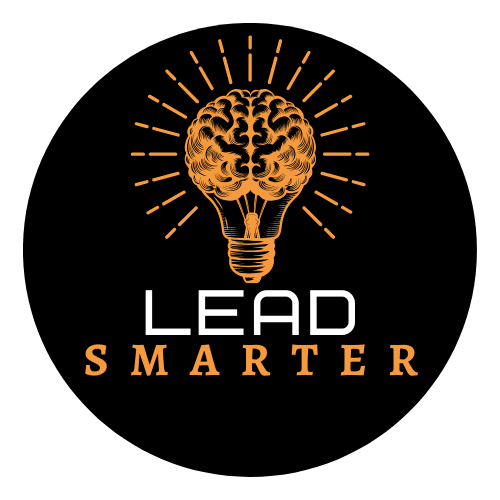The Future of Emotional Intelligent Leadership
Rooted in emotional intelligence (EI)—the ability to understand and manage one’s emotions while empathizing with others—EIL is shaping the future of leadership by fostering trust, resilience, and adaptability in organizations.

The Future of Emotional Intelligent Leadership
Leadership is undergoing a profound transformation in an era defined by rapid technological advancements, global interconnectedness, and evolving workplace dynamics. Traditional authority-driven, results-focused leadership models are giving way to a more human-centered approach: Emotional Intelligent Leadership (EIL). Rooted in emotional intelligence (EI)—the ability to understand and manage one’s emotions while empathizing with others—EIL is shaping the future of leadership by fostering trust, resilience, and adaptability in organizations. This blog post explores the growing importance of EIL, its impact on modern workplaces, and what the future holds for leaders who embrace this approach.
The Rise of Emotional Intelligence in Leadership
Emotional intelligence, popularized by psychologist Daniel Goleman, comprises five key components: self-awareness, self-regulation, motivation, empathy, and social skills. While these traits have always been valuable, they are now critical in navigating the complexities of today’s world. Leaders face unprecedented challenges—hybrid work environments, diverse teams, and heightened employee expectations for purpose-driven work. Emotionally intelligent leadership offers a framework to address these challenges by prioritizing relationships, psychological safety, and inclusivity.
The data backs this shift. A 2023 study by the World Economic Forum found that 86% of employees prioritize empathetic leadership over purely performance-driven approaches. Similarly, a Harvard Business Review analysis revealed that teams led by emotionally intelligent leaders report higher engagement, lower burnout, and increased innovation. As organizations compete for talent and strive for agility, EIL is no longer a “nice-to-have” but a strategic imperative.
Why Emotional Intelligent Leadership Matters Now
1. Navigating Uncertainty with Empathy
The future is unpredictable, with economic shifts, technological disruptions, and societal changes creating constant flux. Emotionally intelligent leaders excel in uncertainty by fostering trust and stability. Their ability to empathize with employees’ concerns—whether about job security or work-life balance—builds loyalty and resilience. For example, during the 2020 pandemic, leaders who communicated transparently and genuinely cared for their teams saw higher retention rates, even amidst layoffs.
2. Driving Inclusive and Diverse Workplaces
Diversity, equity, and inclusion (DEI) are non-negotiable in modern organizations. EIL enables leaders to create environments where diverse perspectives are valued. By practicing active listening and cultural sensitivity, emotionally intelligent leaders bridge divides, reduce conflict, and unlock the creative potential of diverse teams. A 2024 McKinsey report highlighted that companies with inclusive leadership are 35% more likely to achieve above-average financial performance.
3. Enhancing Collaboration in Hybrid Work
The rise of hybrid and remote work has reshaped team dynamics. Leaders must now connect with employees across digital platforms while maintaining a sense of community. EIL equips leaders with the social skills to foster collaboration, recognize non-verbal cues in virtual settings, and address feelings of isolation. Tools like AI-driven sentiment analysis are also emerging to help leaders gauge team morale, but the human touch of EIL remains irreplaceable.
4. Meeting the Demand for Purpose
Today’s workforce, particularly Gen Z and Millennials, seeks meaning in their work. Emotionally intelligent leaders align organizational goals with individual values, creating a sense of purpose. By articulating a compelling vision and showing authentic commitment to social impact, these leaders inspire employees to go beyond the paycheck, driving both engagement and innovation.
The Future of Emotional Intelligent Leadership
As we look ahead, several trends will shape the evolution of EIL:
1. Integration with Technology
Artificial intelligence and data analytics are transforming leadership. AI tools can provide real-time feedback on team dynamics, helping leaders identify stress points or disengagement. However, technology must complement, not replace, emotional intelligence. The future of EIL lies in blending data-driven insights with human empathy. For instance, leaders might use AI to detect burnout patterns but rely on their emotional skills to have meaningful one-on-one conversations.
2. Lifelong EI Development
Emotional intelligence is not a fixed trait—it can be cultivated. Forward-thinking organizations are investing in EI training, using immersive simulations, virtual reality, and peer coaching to enhance leaders’ self-awareness and empathy. By 2030, expect EI to be a core component of leadership development programs, with certifications in emotional intelligence becoming as common as MBAs.
3. Global and Cross-Cultural Leadership
As businesses operate across borders, leaders must navigate cultural nuances and global challenges like climate change or geopolitical tensions. EIL will be critical for building trust in diverse, cross-cultural teams. Leaders who master empathy and social skills will excel at uniting people around shared goals, regardless of geographical or cultural differences.
4. Mental Health Advocacy
The stigma around mental health is fading, and employees expect leaders to prioritize well-being. Emotionally intelligent leaders will lead the charge, modeling vulnerability and creating cultures where mental health discussions are normalized. This includes implementing policies like flexible work hours or mental health days, backed by genuine care for employees’ holistic well-being.
How to Cultivate Emotional Intelligent Leadership
For aspiring leaders, developing EIL is both a personal and professional journey. Here are actionable steps to get started:
- Practice Self-Awareness: Reflect on your emotions and triggers. Journaling or seeking peer feedback can help you understand your strengths and blind spots.
- Hone Empathy: Actively listen to your team without judgment. Ask open-ended questions and validate their experiences.
- Build Resilience: Use mindfulness or stress-management techniques to stay calm under pressure, ensuring you model composure for your team.
- Invest in Training: Enroll in EI workshops or use apps like Headspace for guided emotional awareness exercises.
- Lead by Example: Show vulnerability and authenticity. Sharing your challenges humanizes you and encourages others to do the same.
Conclusion
The future of leadership is not about command and control—it’s about connection and compassion. Emotionally intelligent Leadership is the key to unlocking human potential, fostering innovation, and building organizations that thrive in an uncertain world. As technology advances and workplaces evolve, leaders who prioritize empathy, self-awareness, and social skills will not only succeed but redefine what success means.
The journey to EIL starts with a single step: leading with heart.
Are you ready to embrace the future of leadership?
